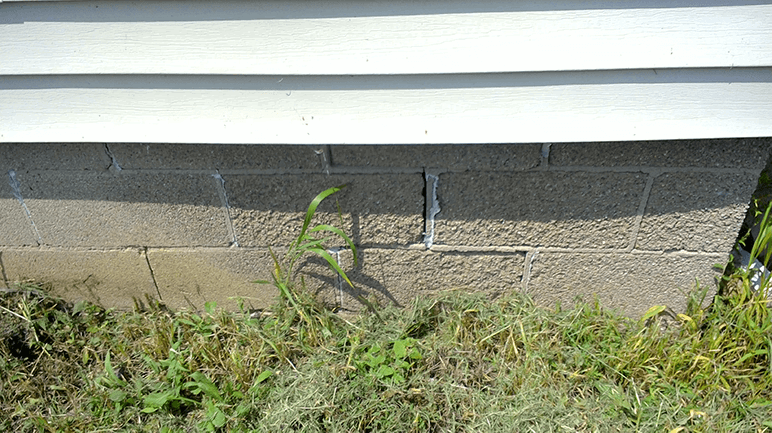
Let’s have a quick flashback to science class, okay? Cold weather makes porous materials contract, or shrink inward. When it gets warmer outside, these materials expand. That’s easy enough, right?
Now let’s think about all the materials in and around your home. Which ones are porous? If you said all of them, you’re right. The wood that makes up your flooring structure, the studs of your walls, the concrete of your foundation, even the soil around your home is porous. These facts allow us to anticipate what happens to your home in the spring, when the temperatures go up and everything starts to relax and expand.
Acculevel is a family-owned and operated company that specializes in repairing foundations and waterproofing homes. Since our start in 1996, we’ve helped over 30,000 homeowners restore health, strength, and stability to their homes. We know spring weather presents some distinct challenges for your home, and we want you to be prepared.
Our goal is to help you protect your greatest investment from foundation damage caused by the relentless changing of the seasons. We’ll look at how spring thaw can impact your foundation, what warning signs to watch for, and when you should take action.
As the ground warms, it thaws out. This allows any ice trapped in the soil to melt and escape. The combination of these events can develop into hydrostatic pressure, especially if your region is prone to spring rains. Hydrostatic pressure is the force of water pushing against your foundation, and it often results in water seeping into the concrete of your foundation.
Since concrete is porous, it also expands slightly in warmer weather. This makes the surface a bit more open and easier for water to find its way inside. This increases the odds of your foundation developing leaks. Standing water in your basement- even if it’s just trickling into a small area- is a clear warning sign.
Before you have water intrusion, you often will have small hairline cracks. We recommend that homeowners check their foundations twice per year, usually in the spring and fall. We’ve developed a DIY foundation checklist that will help you review your home and property for any potential warning signs.
Foundation cracks should always be repaired, and they should be repaired by a professional. Filling a crack in a foundation wall is a very different process than caulking a bathtub. We recommend crack repairs using an epoxy fill. It can be easy to dismiss small hairline cracks, but you have to remember that once a crack forms, it is not going to mend itself. It will only widen over time, and will eventually allow for water intrusion.
If you have a crawl space instead of a basement- or if your home has both- you may not be comfortable entering such a dark narrow space (claustrophobia is no joke!). But you can open the access door and take a few deep breaths. Does the air smell musty, stale, or damp? Can you see into the space? If you can, do you see dampness on the vapor barrier or mud on the dirt “floor?”
These demonstrate that you have a damp or wet crawl space, and this is a very bad thing. Moisture in a crawl space leads to sloping or sagging floors, possible insect infestation, and moldy surfaces.
The best time to act is as soon as you notice the foundation problem developing. Like most situations, the longer you wait to make repairs, the more significant the repairs (and their costs!) will become.
Some delays can be extremely painful in the long run; as an example, imagine postponing crack repair until your basement floods. This isn’t just a more expensive repair financially- a wet basement is a frustrating and unpleasant experience no one enjoys.
If you have more questions about foundation repair, we have a thorough guide that explains all of the concepts in this article– in greater detail. Feel free to read just the sections that interest you, the entire guide, or even bookmark it for future use!
If you have performed an inspection of your foundation and identified issues that need a professional evaluation, find an experienced and reputable contractor. We strongly recommend that you check the Better Business Bureau before you make any decisions; the BBB will help you determine if the contractor is accredited and insured.
Please take advantage of our free checklist of questions you should ask a contractor, to ensure they are the right company for you.
If you live in our service area, please contact Acculevel for a free estimate. One of our experienced project managers will evaluate your foundation condition and recommend the best course of action for you, to keep your home strong and healthy for years to come.
[DISPLAY_ULTIMATE_SOCIAL_ICONS]